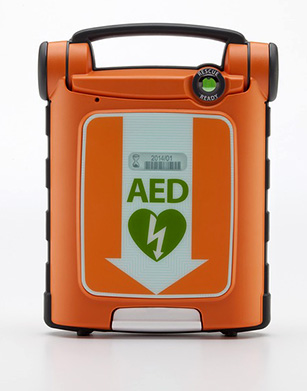Four critical vitamins and minerals for athletes
Coaches and trainers often advise athletes to take supplements to meet the demands of workouts and competition. In reality, eating a varied diet is the simplest and most effective way to supply the body with the fuel and nutrients that it requires daily for optimal health and performances.
Here are four important vitamins and minerals for athletes.
 1. Potassium.
1. Potassium.
It’s important to get enough potassium since it aids the body in maintaining a normal water balance between the cells and body fluids at rest and during exercise.
Being properly hydrated helps the heart to beat normally and it improves the body’s ability to cool itself. It does this by transporting the heat generated during exercise by working muscles (via blood) to the skin where it can evaporate.
Along with meeting normal daily needs (3,500 milligrams) for potassium, teens and adults need to replace the potassium they lose through sweating. Beyond bananas, other potassium-rich options include baked potatoes, winter squash, dairy foods like low-fat milk and yogurt, orange juice, cantaloupe, prunes, tomato juice, pinto beans and leafy greens, like spinach and collard greens.
2. Calcium.
Besides building strong bones and teeth, calcium helps muscles to contract, nerves to send messages and blood to clot properly. The requirement for calcium is higher during the teen years, where they require 1,300 milligrams daily or about four servings. Those ages 19 to 50 require 1,000 milligrams daily, and 1,200 milligrams for women over 50 and men over age 70.
Consuming adequate calcium helps protect athletes from season-ending stress fractures, but only if the athlete is consuming enough calories to fuel their activity level. While calcium is used to make bone, it’s estrogen and testosterone that enable the body to hold on to or keep bone.
Food calcium never affects the body’s blood calcium level. If the foods a person chooses to eat don’t supply enough calcium, the body steals from the only source it has — bones and teeth. At 300 milligrams a serving, milk, yogurt and cheese are calcium rich, as are foods made with milk, such as puddings and soups.
3. Iron.
Iron-deficiency anemia can lead to fatigue, poor recovery and subpar performances, on the field and in the classroom.
Athletes who are dieting or under-eating, vegetarian or vegan, train at high altitude, have increased losses in sweat, menses or their sport involves a great deal of pounding or foot-strike are most at risk for developing iron deficiency anemia.
Animal foods, such as lean red meat, dark poultry and seafood, provide the most readily absorbable and usable form of iron (known as heme iron), especially as compared to the non-heme iron from plant sources, such as dark leafy greens, dried fruit, beans and lentils, whole grains and soy foods. The iron supplied by supplements is also non-heme iron.
4. Zinc.
This is essential for normal growth, energy production and keeping the immune system strong. It also plays a key role in the building and repair of muscle tissue, including repairing the cellular damage caused by daily workouts.
Athletes who consume enough lean, quality protein from animal sources daily typically will get enough zinc. Athletes choosing to limit or avoid red meat, as well as vegetarian and vegan athletes, are most at risk for consuming too little zinc.
Animal foods, such as lean meats, fish, poultry, shell fish and oysters, and whole grains and legumes (e.g., kidney, black, and pinto beans) are all zinc-rich foods.
Why water matters most
Our body is roughly 50 to 65 percent water. Yet, it’s often neglected.
Players feel thirsty when they have already lost around 2 to 3 percent of their body’s water. Mental performance and physical coordination start to become impaired before thirst kicks in, typically around 1 percent dehydration. Most colleges and pro teams have tracked this for the last decade.
Although most programs don’t use any official equipment to determine whether players are adequately hydrated, encourage players to drink water throughout the day and have three set water breaks built into practice. Water’s many qualities make it arguably the best and easiest form of injury prevention and body maintenance.





